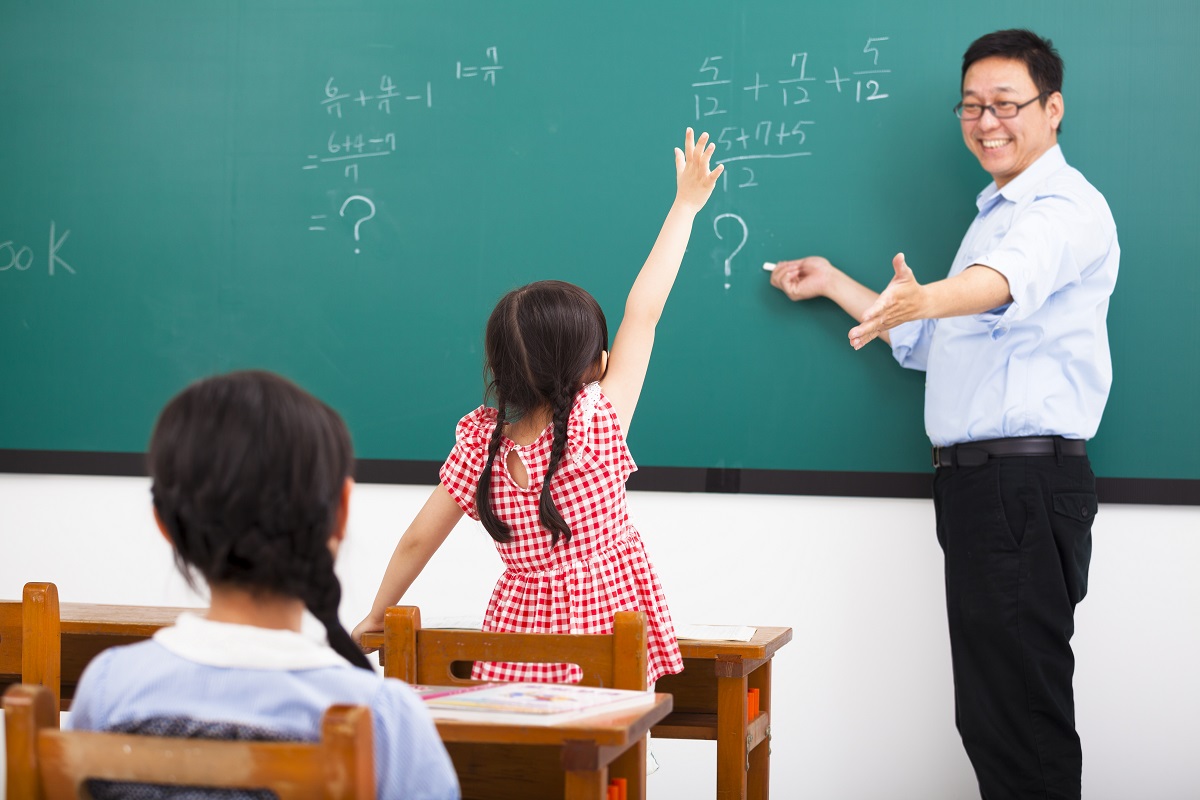Get Top Results with Primary Science Tuition Singapore from Experienced Tutors
Get Top Results with Primary Science Tuition Singapore from Experienced Tutors
Blog Article
Discover the Vital Benefits of Understanding Main Science for Young Students
The significance of primary scientific research education and learning for young learners expands far beyond simple expertise procurement; it offers as a basic column in creating essential skills such as vital reasoning, analytical, and imagination. Involving with scientific ideas with inquiry-based and interactive tasks not only grows interest however additionally lays the groundwork for durable, certain students.
Enhancing Crucial Thinking Skills
Promoting essential thinking skills in young students is important for their cognitive development and future scholastic success. Critical thinking enables kids to examine details, review evidence, and make informed choices, which are important abilities in today's information-rich culture. By participating in clinical inquiry, young students can boost these abilities as they discover concepts via observation, experimentation, and reasoning.
In primary scientific research education and learning, teachers can promote critical reasoning by urging students to ask questions, create hypotheses, and carry out experiments. This hands-on strategy allows children to practice analytical and establish rational reasoning skills. As an example, when pupils explore the residential or commercial properties of products or the concepts of motion, they learn to assess their findings critically and attract verdicts based upon evidence.
Furthermore, conversations and collaborative tasks can promote vital reasoning by providing possibilities for students to verbalize their thoughts, difficulty presumptions, and think about diverse viewpoints. By developing a helpful setting that values query and reflection, instructors can nurture important assuming skills that encourage young students to end up being long-lasting students and independent thinkers. Ultimately, enhancing these abilities lays a robust foundation for their future academic ventures and individual growth.
Cultivating Curiosity and Expedition

Main scientific research education and learning supplies an organized setting where young learners can check out different sensations through hands-on experiments and monitorings. By enabling them to connect with products and engage in inquiry-based learning, teachers develop possibilities for children to formulate theories, evaluate their ideas, and reason. Such experiences nurture a feeling of wonder and enjoyment concerning science.

Building Confidence in Issue Addressing
Building confidence in problem-solving is a critical component of key scientific research education and learning that empowers young students to come close to obstacles with resilience and creativity - primary science tuition Singapore. They establish vital skills in crucial thinking and analysis when children are encouraged to involve with clinical ideas with hands-on tasks and inquiry-based understanding. This process not just enhances their understanding of clinical concepts but likewise fosters a feeling of possession over their knowing
To develop confidence, educators should produce an encouraging setting where errors are considered as chances for growth rather than failings. This motivates students to take risks and explore different services to issues. By offering scaffolding and advice, teachers can aid trainees navigate complex tasks, progressively boosting their self-reliance in analytical situations.
Furthermore, collective knowing experiences, such as team jobs or experiments, can additionally enhance students' confidence as they find out to express their ideas and pay attention to others' point of views. These interactions support social abilities and enhance the idea that problem-solving is typically a collective venture. Ultimately, cultivating confidence in problem-solving prepares young students for future scholastic difficulties and outfits them with the tools needed for long-lasting understanding.
Urging Creative Thinking and Innovation
In the realm of primary science education, urging imagination and development is crucial for growing a dynamic learning environment. By fostering a society where young students can discover concepts and experiment easily, teachers aid students establish essential assuming skills and a passion for exploration. Creative thinking in scientific research motivates children to ask inquiries, devise hypotheses, and take part in hands-on activities that promote their creative imagination.
Integrating open-ended projects and inquiry-based understanding right into the curriculum allows trainees to reveal their unique perspectives and remedies. For example, when tasked with resolving an issue related to their setting, students can brainstorm multiple approaches, bring about creative outcomes that showcase their originality. This not just grows their understanding of clinical principles but additionally imparts a sense of possession over their understanding procedure.
Additionally, innovative scientific research education nurtures collaboration among peers, as pupils often share ideas and develop on each other's insights - primary science tuition Singapore. This collective spirit promotes not just technology yet likewise necessary social abilities. Therefore, by prioritizing creative thinking and technology in main scientific research education, we equip young students to think critically, welcome challenges, and envision opportunities, laying a solid foundation for lifelong discovering and exploration
Planning For Future Learning Difficulties
Young learners' capacity to navigate future knowing obstacles depends upon a strong structure in primary scientific research education. This foundational understanding outfits pupils with essential believing skills and an organized technique to analytical, vital for dealing investigate this site with complicated problems in an ever-evolving globe. Main science fosters inquiry-based understanding, motivating pupils to ask questions, check out hypotheses, and involve in hands-on experiments.
As they develop these skills, learners become experienced at assessing information, recognizing patterns, and attracting informed conclusions. Such proficiencies are vital not only in scientific fields but likewise in design, mathematics, and modern technology (STEM), where interdisciplinary understanding is significantly essential.
Moreover, primary science education cultivates a sense of interest and browse around these guys durability in young students, allowing them to see challenges as chances for growth. As they encounter and overcome barriers in their scientific expeditions, they build self-confidence in their capability to introduce and adjust.
Inevitably, a solid structure in key science not just prepares young students for academic searches yet also equips them with the tools needed for long-lasting understanding and flexibility in a swiftly changing international landscape. By purchasing key science education, we are buying the future potential of our learners.
Verdict
Understanding key scientific research is crucial for young learners, as it cultivates important reasoning, inquisitiveness, and creative thinking. Inevitably, the advantages of key scientific research education prepare children for future scholastic searches and infuse lifelong discovering habits necessary for thriving in an ever-evolving world.
The value of main science education and learning for young visit learners extends much beyond simple knowledge procurement; it serves as a fundamental pillar in creating essential abilities such as crucial thinking, analytic, and imagination. By producing an encouraging setting that values questions and reflection, instructors can nurture crucial believing abilities that encourage young learners to come to be independent thinkers and lifelong learners. Therefore, by focusing on creative thinking and development in main scientific research education and learning, we equip young learners to assume seriously, welcome challenges, and picture possibilities, laying a solid structure for long-lasting discovering and expedition.
Young learners' capability to navigate future discovering challenges hinges on a strong foundation in primary science education.Comprehending primary scientific research is critical for young learners, as it fosters critical thinking, interest, and imagination.
Report this page